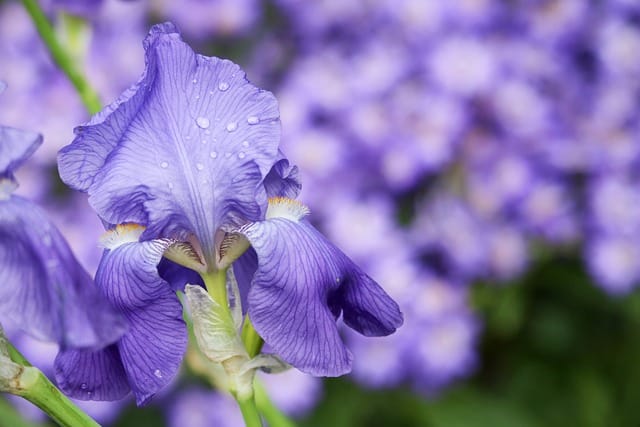Fighting gardening diseases: Iris borers
Gardening can be a wonderful and fulfilling hobby, but it can also come with its fair share of challenges

In this article:
Introduction
Gardening can be a wonderful and fulfilling hobby, but it can also come with its fair share of challenges. One common problem that gardeners face is the presence of iris borers. These pests can cause significant damage to your iris plants if not properly managed. This article aims to provide you with a comprehensive guide on understanding and combating iris borers to protect your beautiful irises.
Understanding Iris Borers
Iris borers are the larvae of a moth species called the Iris borer moth (Macronoctua onusta). These larvae tunnel into iris rhizomes, causing extensive damage to the plant. Understanding the life cycle and behavior of iris borers is crucial for effective management.
Identifying Iris Borer Infestation
Early detection of iris borer infestation is vital to prevent the pests from causing significant damage. Learn how to identify the signs of iris borer presence in your garden to take prompt action.
Preventing Iris Borers
Preventing iris borers from infiltrating your garden is always the first line of defense. Implement preventive measures such as maintaining proper sanitation, selecting resistant iris varieties, and creating physical barriers to deter the pests.
Cultural Control Methods
Implement cultural practices that create unfavorable conditions for iris borers. This includes proper planting techniques, regular thinning, irrigation management, and maintaining overall plant health.
Biological Control Methods
Utilizing natural enemies and beneficial organisms can play a significant role in controlling iris borers. Learn about biological control methods, such as introducing predators and parasites, to maintain a balance in your garden ecosystem.
Chemical Control Methods
If other control methods fail or the infestation is severe, chemical control may be necessary. Explore different chemical options for controlling iris borers and the precautions you must take when using them.
Integrated Pest Management Strategies
Integrated Pest Management (IPM) combines different control methods to effectively manage pests while minimizing environmental impact. Discover how to integrate various approaches to create a comprehensive iris borer management strategy.
Iris Borer Management Calendar
Keep track of essential tasks and timelines in your iris borer management plan with a comprehensive calendar. Learn when to inspect, monitor, treat, and take preventive measures throughout the year.
Signs of Successful Iris Borer Management
Learn how to assess the success of your iris borer management efforts by identifying signs of healthy iris plants and reduced pest population. Monitoring and regular assessment are key to improving your control strategies.
Conclusion
Iris borers can be a persistent and damaging problem in gardens, but with the right knowledge and control methods, you can effectively manage and prevent their infestation. Be proactive, implement preventive measures, and use a combination of control strategies to protect your irises and enjoy a flourishing garden.
